STARS Celebration 2022 Featured Speakers
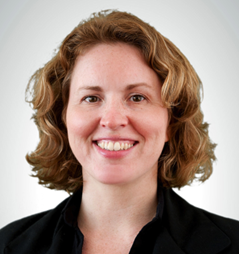
Dr. Tiffany Barnes, North Carolina State University
Tiffany Barnes is Professor of Computer Science at NC State University. She received the B.S. and M.S. degrees in Computer Science and Mathematics, and the Ph.D. degree in Computer Science from N.C. State. A member of Phi Beta Kappa and the NC State Golden Chain Society, she has served ACM SIGCSE (Symposium Chair 2018, Program Chair 2017, Board 2011-2016), IEEE Special Technical Community on Broadening Participation (Chair, and founder of the RESPECT conference (2015-present)), the International Educational Data Mining Society (EDM chair 2016, board 2011-present), STARS Computing Corps (Co-Director 2006-present, Celebration Chair 2011, 2015), Foundations of Digital Games (Program Chair 2014), the International Society for AI in Education (Board 2016-Present), and IEEE Transactions on Learning Technologies (Assoc. Editor 2016-Present). Dr. Barnes received an NSF CAREER Award for her novel work in using data and educational data mining to add intelligence to STEM learning environments. Dr. Barnes is the co-founder and co-Director for the STARS Computing Corps, a consortium of universities that engage college students in outreach, research, and service to broaden participation in computing. Her research focuses on AI for education, educational data mining, serious games for education, health, and energy, computer science education, and broadening participation in computing education and research.
Tya Barnes, Temple University
Tya Barnes received a B.S. in Application Programming and Computer Science from The Lincoln University, 2016 and is currently pursuing her MS, TESC (Transformative Education and Social Change) degree from West Chester University, Philadelphia Campus. As a Philadelphia Native, Barnes passion for education and community was fostered through her experiences with Upward Bound Programs, after graduating high school and the UPenn Upward Bound program, she continued her relationship as a Volunteer Mentor for students interested in studying or pursuing Application Programming studies. Barnes continued to pursue Techcorp employment. Barnes has committed from 2016 to 2021, balancing Program Facilitating organization and advancing Technical Career. Establishing Powerful Mindz Inc.Graduate Education programs provided Barnes not only the Academic resources, but the ability to organize Mindful STEM programs with Philadelphia Public Schools. Her research interests include inclusive computing systems for Black and Hispanic studies, resourcing Computing Alumni & Professionals, and retention research response: pedagogical-wellness initiatives, improving computer science learning experiences. Currently joining the Temple University STARS Computing Corps program as the Managing Programs & Impact Director, of the Department of Computer and Information Sciences.
Dr. Jason Black, Florida A&M University
Dr. Jason T. Black is an Associate Professor in Information Systems and Operations Management in the School of Business and Industry at FAMU. Dr. Black is also a member of the South Big Data Hub and a participant in the NSF Data-Up Initiative, as well as an instructor for the Software Carpentry program, which teaches data science-related tools to researchers using interactive teaching strategies. Black also serves as the current Director of the HBCU Data Science Consortium, a network of HBCU professionals and industry partners interested in increasing HBCU access and participation in data science. Dr. Black received his bachelor of science degree in Computer Information Systems from Florida A&M University, his master of science degree in Computer Science from Georgia Institute of Technology and his PhD in Computer Science from Florida State University.
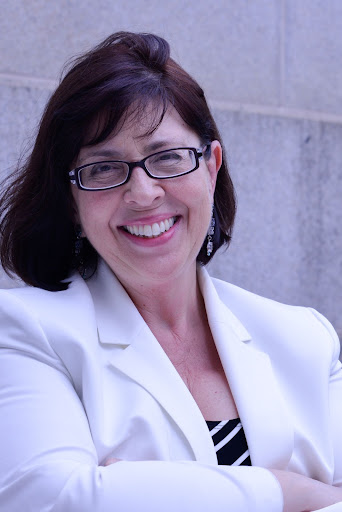
Sarita Brown, Excelencia in Education
Sarita E. Brown is Co-founder & President of Excelencia in Education, the nation’s premier authority on accelerating Latino student success in higher education by linking research, policy, and practice to better serve Latino students. A recognized leader and advocate for equity in higher education, she began her career at the University of Texas at Austin, where she built a national model for increasing the number of students of color in graduate education and in the academy. Seeking her skills as a change agent, she was recruited to come to Washington, DC, where she served in leadership roles at higher education associations, American University, and the Hispanic Scholarship Fund Institute. She was appointed Executive Director of the White House Initiative on Educational Excellence for Hispanic Americans during the Clinton Administration. As Excelencia’s President, Sarita draws on her expertise catalyzing higher educational institutions and leaders and supports the expansion of Excelencia’s network of college and university presidents and chancellors committed to making their campuses learning environments where Latino students thrive. She engages partners and investors to advance Excelencia’s tactical plan and transform higher education to intentionally serve Latino students.
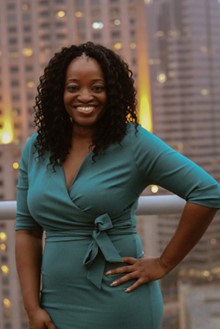
Taneisha Lee Brown, The Findings Group, LLC
Taneisha Lee Brown is a Lead Evaluator at The Findings Group, LLC, a research and evaluation firm that serves K-16 public education organizations and programs. Dr. Brown is a trained qualitative and quantitative methodologist with a research focus in youth development and underrepresented student access to postsecondary education and STEM careers. Dr. Brown has professional experience developing and managing several academic mentoring programs funded by private foundations and federal grants. She has served as an evaluator on multisite and longitudinal early childhood, K-12, and postsecondary education programs. Dr. Brown’s involvement included instrument development, data collection, and analysis of both qualitative and quantitative data. Dr. Brown has served as an instructor at Georgia State University teaching undergraduate and graduate courses in Program Evaluation and Research Methods.
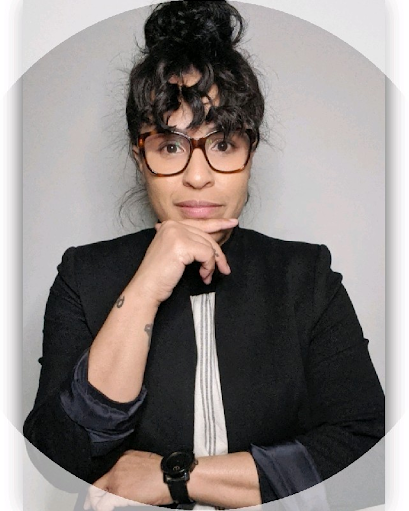
April Curley, Last Mile Education Fund
For more than a decade, April Christina Curley (she/her/hers) has built her career centering poor, Black and Brown people, striving to make an impact on the very communities that she, herself, comes from. Most recently, she spent 6 years as a Diversity Program Manager at Google working to expand access to opportunities in tech for undergraduate Black and brown students, including those who identify as coming from low-income communities, students with disabilities, and students who exist along the queer spectrum. She helped create and grow a program called Google in Residence, designed to improve tech-sector diversity by placing engineers at Historically Black Colleges and Universities to teach and mentor students. Highlights of April’s tenure at Google include single-handedly increasing Google’s Black technical hiring from 0 hires in 2014 to 500+ through her program Google In Residence, managing Google’s second ever Queer Tech Voices Conference featuring high-profile speakers and artists, and spearheading the Google Student Newsletter as editor-in-chief engaging over 3,500 undergraduate students and faculty.
Formerly, she was a diversity recruiter for Teach for America after serving for two years with the organization as a high school social studies teacher in Baltimore City Public Schools. She earned an M.A. in secondary education and teaching from Johns Hopkins University and is a member of Leadership for Educational Equity, a nonpartisan nonprofit that develops Teach for America alumni to become leaders in their communities.
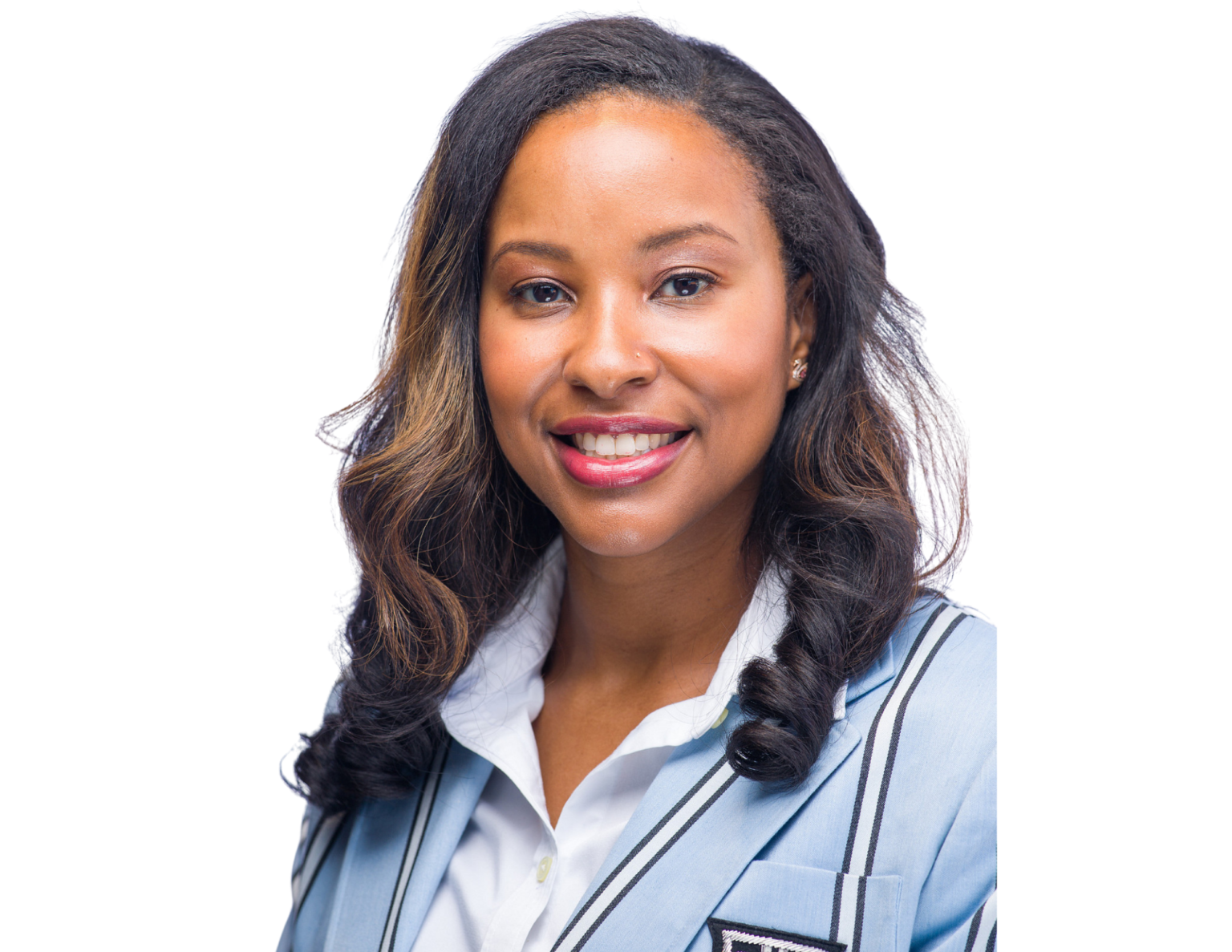 Dr. Sihoban Day Grady, North Carolina Central University
Dr. Sihoban Day Grady, North Carolina Central University
Siobahn is the first woman computer science Ph.D. graduate from North Carolina Agricultural and Technical State University (2018). She is an assistant professor of information science/systems in the School of Library and Information Sciences at North Carolina Central University, Program Director for the Information Science program, Lab Director for the Laboratory for Artificial Intelligence and Equity Research (LAIER), Co-Director for the Center for Data Equity (CODE), an AAAS IF/THEN ambassador, and an Office e-Learning faculty fellow at North Carolina Central University. Her research focuses on utilizing machine learning to identify sources of misinformation on social media and on improving fault detection in autonomous vehicles.
Dr. Grady advocates increasing the number of women and minorities in computer science. She believes that “the STEM workforce has both gender disparities and that of historically disenfranchised groups. As an AAAS IF/THEN ambassador, she affects change by examining girls’ perceptions, attitudes, and behaviors, helping them gain confidence in curating and developing a STEM identity.”
Additionally, Dr. Grady has been featured in museums throughout the nation, has spoken at national and international conferences, serves on multiple boards, and was featured as a statue in the world’s largest exhibit of women statues. Technology is the way of the future, and Dr. Grady has a vision for minority girls’ and women’s futures. She realizes that vision by providing educational opportunities through community organizations, philanthropic efforts, college courses, and research grants and publications.
She is a member of several associations, including the Alpha Zeta Omega Chapter of Alpha Kappa Alpha Sorority, Inc., Junior League of Durham and Orange Counties, Winston Salem State University National Alumni Association (life member), and North Carolina Central University National Alumni Association (life member). She also volunteers for various organizations, including Boy Scouts of America, FIRST North Carolina, Girl Scouts of America, and Black Girls Code, which introduces science, technology, engineering, and mathematics skills to African American girls.

Dr. Edward Dillon, Morgan State University
Dillon received a B.A. in Computer and Informational Science from the University of Mississippi in 2007. He would go on to obtain his Masters and Ph.D. in Computer Science from the University of Alabama in 2009 and 2012, respectively. Dillon currently serves as a newly tenured Associate Professor in the Department of Computer Science at Morgan State University. Prior to his arrival to Morgan State, Dillon served as a Computer Science Instructor at Jackson State University (2012-2013), and a Postdoctoral Researcher at Clemson University (2013-2014) and the University of Florida (2014-2016). His research focuses on human-centered computing, computer science education, social computing, and broadening participation in computing. Dillon has received approximately >$750k in research funding and awards from external agencies and non-profit organizations, including the National Science Foundation (NSF), the Maryland Pre-Service Computer Science Teacher Education Program (MCCE), and the Collaborative Research Experience for Undergraduates (CREU - CRA-W). Dillon serves as a Co-PI for the STARS Computing Corps, which recently has been renewed for funding by NSF. He has also conducted a Faculty in Residency at Google during the summer of 2018 to learn more about this company’s culture, practices, and to understand the expectations for candidates (e.g. aspiring CS majors) who pursue career opportunities at this company and related prominent companies in tech.
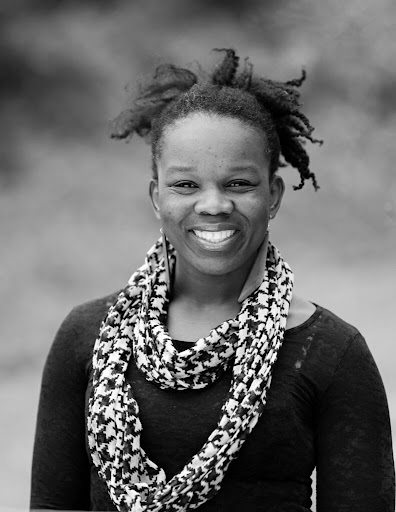
Dr. Wanda Eugene, University of Florida
Wanda Eugene, Ph.D., is constantly seeking new ways to leverage technology to engage underestimated communities. At the University of Florida Innovate, she is the Director of the Collaboratory for Inclusive Entrepreneurship. The Collaboratory offers programs and support for women and founders of color across the state of Florida, endeavoring to launch, grow and sustain tech-based businesses. She created the Entrepreneur Diversity in Information Technology (EDIT) program. This free pre-incubator program supports entrepreneurs from minoritized communities in moving from ideation to prototypes in their digital technology-based businesses. In addition, she serves as a principal at DEEP Designs LLC, where she specializes in cultivating technology with vulnerable populations and integrating the organization's strategic direction. Dr. Eugene holds a Ph.D. in Computer Science, a Master's in Industrial Engineering, a Master's in Interdisciplinary Studies specializing in Instructional Technology and African American Studies, and a Bachelor's in Electrical Engineering.
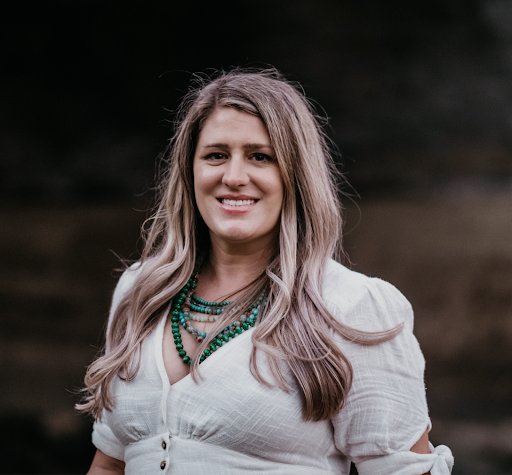
Dr. Susan Fisk, Kent State University
Susan Fisk received her Ph.D. in Sociology from Stanford University in 2015 and is currently an Associate Professor at Kent State University. She is a social psychologist whose research focuses on understanding and disrupting gender inequality in occupational and educational settings. The National Science Foundation has awarded Dr. Fisk over half a million dollars to conduct research on computing education and strategies to broaden participation in computing. Outside of academia, she has worked as a strategy consultant and on the People Analytics team at Google.

Dr. Kinnis Gosha, Morehouse College
Dr. Kinnis Gosha is the Hortinius I. Chenault Endowed Professor of Computer Science and Director of the Culturally Relevant Computer Lab at Morehouse College. Dr. Gosha’s research interests include conversational agents, social media data analytics, computer science education, broadening participation in computing, and culturally relevant computing. Gosha also leads the Morehouse College Software Engineering Degree Program, where he builds collaborations with industry partners to provide his students with a variety of experiential learning experiences.
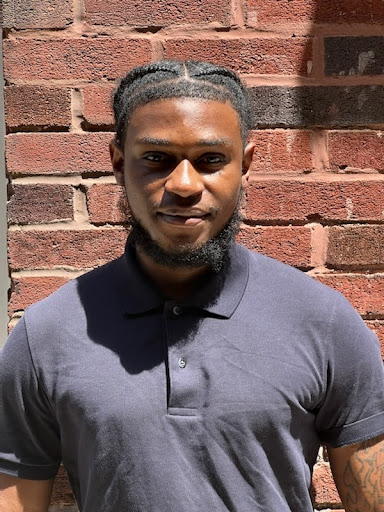
Jontue Hill, Urban Technology Project
The way I was introduced to the world of Tech is a funny story. I was working an overnight shift at Wawa, and while I was cleaning the coffee table, I overheard two older guys, maybe in their mid-40’s, talking about how they were rethinking their careers to find a way to get into Tech because that's where the future is. They spoke about going to "DEF CON," one of the world's largest hacker conventions, held in Las Vegas. It was like a light sparked in my head and since then I've been doing research on steps to take to break into Tech, but it seemed the only thing I was missing was a diploma. So, I quit my job at Wawa and went back to school, and from that moment, it feels like the sky's the limit. I discovered a software engineering internship at Drexel University called Philly Tech, where I've been learning about coding and different languages (we have been creating websites from scratch using HTML, CSS, and soon, Python) and making connections with people who are widening understanding of all that is possible in Tech. This provided a path for the future. Recently accepted for an apprenticeship as a computer support specialist for the Urban Technology Project, which feels right up my alley because I’m also interested in learning more about careers in cyber security.

Dr. Faye Jones, Florida State University
Faye R. Jones is a Research Specialist II at the College of Communication & Information at Florida State University. Her research interests include STEM student outcomes and the exploration of student pathways (e.g., recruitment, retention, graduation, and employment) through institutional research and data analytics. Dr. Jones is Associate Director for the Information Use and Policy Institute where she serves as co-investigator on several NSF and IMLS projects to include the NSF project entitled, Backtracking CTE Pathways: Deconstructing critical junctures in 2-year IT programs. She is particularly excited about exploring STEM alumni outcomes as FSU Co-PI on NSF BPC: Collaborative Research: BPC-AE: STARS: Catalyzing Action-Oriented Academic Communities for Broadening Participation in Computing.
Dr. Jones’ research interests also include exploration of college-to-career success of underserved populations in STEM fields. She is passionate about engaging underserved youth in STEM and is PI of Black Men in Tech: the iHub Experience and Co-PI of FSU iCamp, both programs funded by the Army Educational Outreach Program to increase the engagement of rising 9-12th grade high school students.
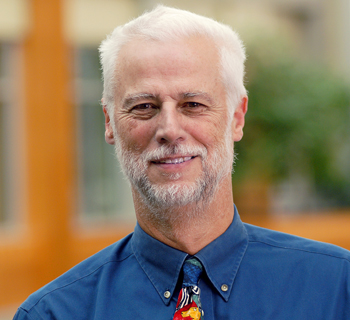
Dr. Richard Ladner, University of Washington
Dr. Richard E. Ladner is a professor emeritus in the Paul G. Allen School of Computer Science and Engineering at the University of Washington. His research interests are in accessible computing which is about technology to support people with disabilities. He is the Principal Investigator of AccessComputing, a National Science Foundation project with the goal of increasing the participation of people with disabilities in computing fields. He is also a Principal Investigator of AccessCSforAll, a National Science Foundation project that works on accessible educational technology for K-12 and professional development for K-12 teachers so they can better include students with disabilities in their computing classes.

Tom McKlin, The Findings Group, LLC
Tom McKlin has over a decade of experience evaluating federal programs, serves on numerous federal proposal review panels, and serves as an invited guest lecturer on several evaluation topics. He has run The Findings Group, LLC since 2008. Before that, he directed evaluation at Georgia Tech’s Center for Education Integrating Science, Math, and Computing (CEISMC). He has a Ph.D in Instructional Technology and a Master’s Degree in Applied Linguistics. His current research interests include Social Network Analysis, Assessing Content Knowledge, Pedagogical Content Knowledge, and stereotype threat. He lives in Atlanta and supports numerous federally-funded clients through grants from NSF, NIH, U.S. DOE, and DOD.
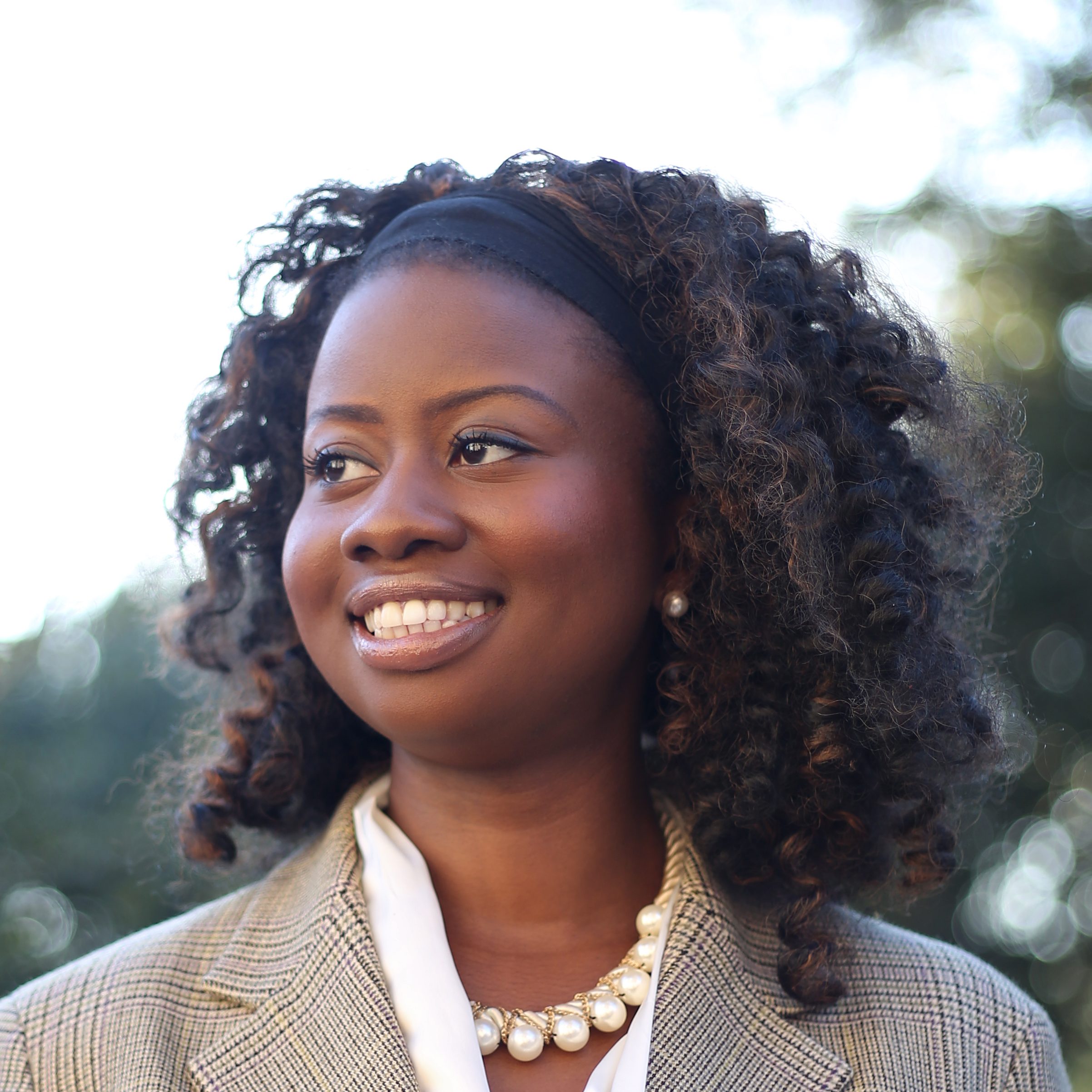
Dr. Kyla McMullen, University of Florida
Keynote Speaker
Dr. Kyla McMullen earned her Bachelor of Science in Computer Science from the University of Maryland, Baltimore County (UMBC), where she was also a Meyerhoff Scholar. She earned her Masters and Ph.D. degrees in Computer Science and Engineering from the University of Michigan (2007-2012). While earning her Ph.D. she was also a faculty member at Wayne State University in Detroit, Michigan. At Wayne State University she taught computer literacy courses to over 2,000 students. Dr. McMullen is the first (and currently the only) woman of color to earn a Ph.D. in Computer Science and Engineering from the University of Michigan. She is currently a tenure-track faculty member in the University of Florida’s Computer & Information Sciences & Engineering Department. Dr. McMullen has a personal commitment to encouraging women and minorities to pursue careers in computing and other STEM fields. She is the author of “Beautiful, Black, and Brainy” and “Brilliant is the New Black” which showcase hundreds of exceptional young African Americans who excel in STEM fields and don’t fit the typical “scientist” stereotype.
Dr. McMullen is also senior personnel for NSF’s Institute for African-American Mentoring in Computing Sciences (iAAMCS) effort to broaden participation in the field of computing. In this role, she has served as the conference chair for the National Society of Blacks in Computing. The conference gathers Black computing student, faculty, and industry professionals for professional development, career progress, networking, and bonding. In addition, Dr. McMullen co-hosts Modern Figures Podcast, elevating the voices of Black women in computing. This podcast is a collaborative effort iAAMCS and The National Center for Women and Information Technology (NCWIT ) to highlight the often neglected stories of Black women in computing.
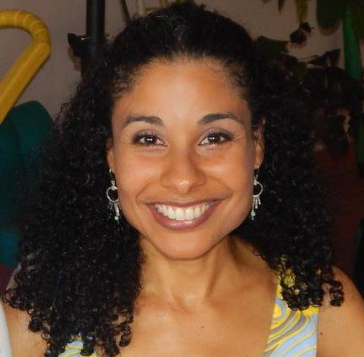
Pascua Padró, The Findings Group, LLC
Pascua Padró is an experienced program evaluator with over 20 years of planning, implementing, reporting, and disseminating local (Puerto Rico) and federally funded educational programs designed to improve K-16 student learning mainly through: (a) teacher professional development; (b) promotion of standards-based, problem-based learning, and STEM integrated curricula; and (c) development of innovative, experiential-learning, and evidence-based teaching and learning practices. She currently collaborates with The Findings Group in the evaluation of various educational programs focused on developing computational thinking skills in Hispanics.

Akil Parker, All This Math
Akil Parker is a Black man playing his part by teaching mathematics in the Black community. He has been a mathematics teacher for 17 years in Philadelphia. Currently he serves as an adjunct professor at this country’s first HBCU, Cheyney University where he teaches math courses.
He is also founder and CEO of the educational services company, All This Math, LLC. Through All This Math he provides private math tutoring, educational consulting, teacher coaching and free online math instructional content via YouTube. He will soon be publishing his first book entitled ‘Why All This Math?’ which is a simplified guidebook parents can use to teach fundamental math skills to their children in the home, car or wherever they may be.
Raised in Baltimore, MD, Mr. Parker attended Roland Park Elementary/Middle School before attending Baltimore Polytechnic Institute for high school. He later earned a bachelor’s degree in Finance from Morgan State University and later a Master’s Degree in Educational Leadership from Lincoln University while serving as a teacher in Philadelphia, PA.
He is a father of three children and lives in Philadelphia, PA where his company All This Math, LLC is based. He has committed himself to improving the Black community by way of mathematics education.
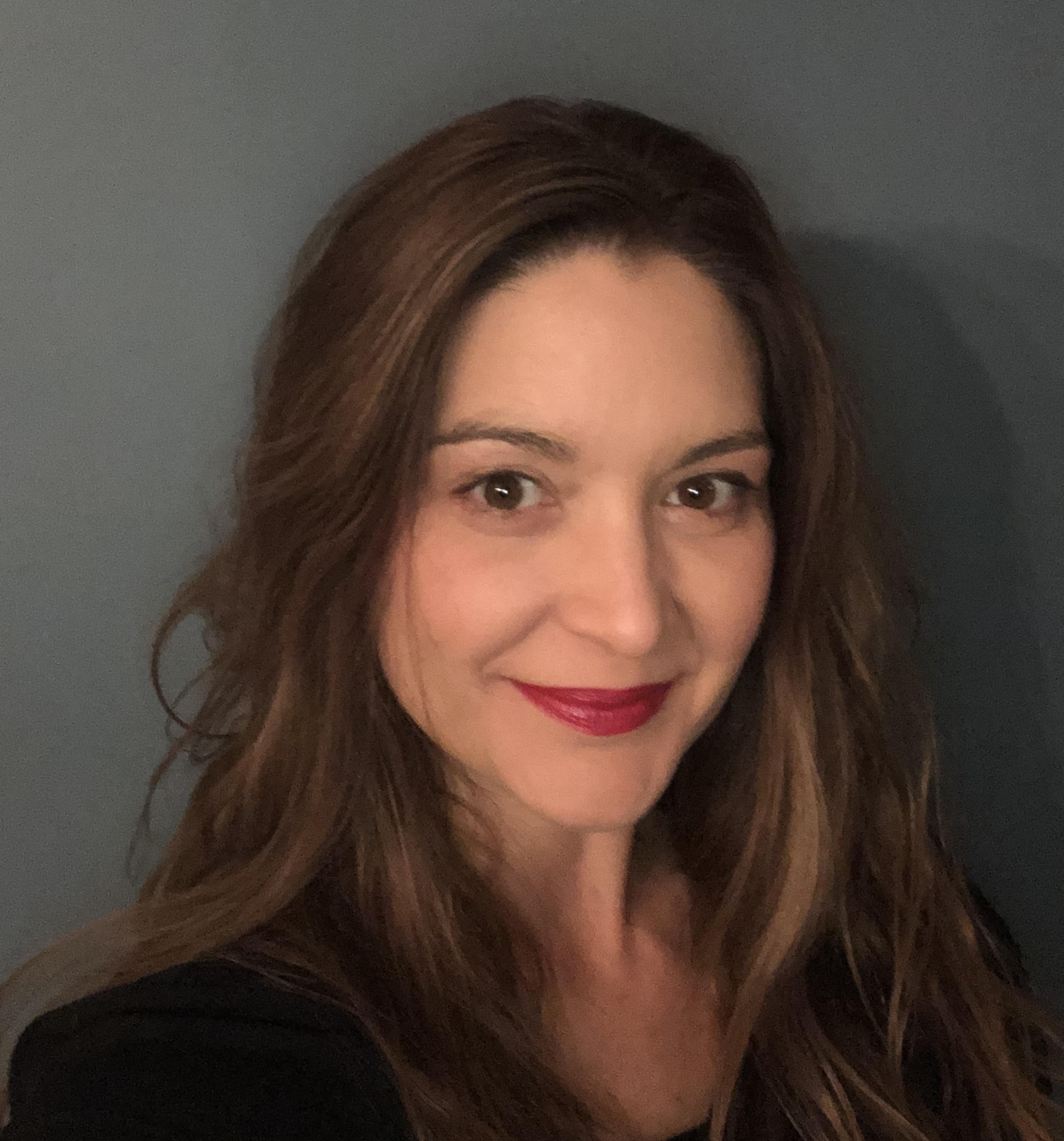
Dr. Jamie Payton, Temple University
Jamie Payton is Chair of the Department of Computer and Information Sciences at Temple University. Her research interests include pervasive computing systems for smart health and well-being, broadening participation in computing, and evidence-based approaches to improving computer science education. She is the Director of the STARS Computing Corps, a national alliance with the mission to broaden participation of groups that are underrepresented in computing. With support from the National Science Foundation, the STARS Computing Corps operates as a community of practice that engages computing faculty and students at institutions of higher education (IHEs) with a shared commitment to take action to advance diversity, equity, and inclusion in computing. STARS has engaged more than 50 colleges and universities in projects designed to promote persistence by connecting computing to community and societal impacts, reinforcing computing knowledge through teaching and practice, and developing professional, entrepreneurial, and creative skills. STARS student members have positive gains in GPA, self-efficacy, computing identity, and commitment to computing, with enhanced outcomes for women, African American/Black, and Hispanic/Latinx students.
Through her work with STARS, Payton has also helped to foster an academic community centered around broadening participation in computing through the annual STARS Celebration conference, which builds capacity for students and faculty through education and ignites action for adoption of evidence-based BPC practices, and as a co-founder of the IEEE STCBP RESPECT research conference, which advances peer-reviewed scholarship on diversity, equity, and inclusion in computing. Payton is also a founding member of the Connected Learner project, which aims to revolutionize undergraduate computer science education by connecting students to peers, connecting students to the profession, and connecting computing to a purpose and by transforming faculty classroom practices and departmental culture to emphasize inclusive pedagogy.
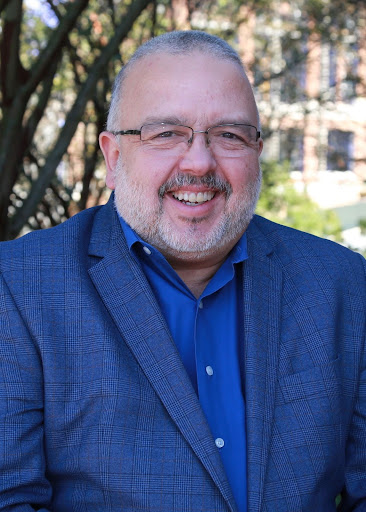
Dr. Manuel A. Pérez-Quiñones, University of North Carolina at Charlotte
Dr. Manuel A. Pérez Quiñones is Professor of Software and Information Systems at UNC at Charlotte. His research interests include personal information management, human-computer interaction, CS education, and diversity issues in computing. He holds a DSc from The George Washington University and a BA & MS from Ball State University. He has published over 100 refereed articles and received an NSF CAREER award (many years ago). Before joining UNCC, he worked at Virginia Tech, University of Puerto Rico-Mayaguez, Visiting Professor at US Naval Academy, Visiting Professor at Northeastern, and as a Computer Scientist at the Naval Research Lab. He currently serves on several national committees and boards, including the Committee on Women in Science, Engineering and Medicine at the National Academies, the Advisory Board for CMD-IT, the Steering Committee for BPCNet.org and as an NSF Expert for the CISE division. He also served on the SIGCSE Board (2019-2022), was Program Co-Chair for the SIGCSE Technical Symposium 2018 and Symposium Co-Chair in 2019, Program Chair for the 2014 Tapia Conference, and was Chair of the Coalition to Diversify Computing. His efforts to diversify computing have been recognized nationally, earning him an ACM Distinguished Member status (2019); the CRA A. Nico Habermann award (2018); and the Richard A. Tapia Achievement Award (2017). He is originally from San Juan, Puerto Rico.

Dr. John Porter III, Morehouse College
Dr. John Porter III is currently a PostDoctoral Research Scientist and adjunct faculty member at Morehouse College. He is also the deputy program manager for the Culturally Relevant Computing Lab, which specializes in using technology to support minority communities. His interests include CS education and outreach in K-12 settings, fostering a supportive system around community colleges and trades, and the analysis of user experiences with innovative technologies across time. He received his PhD and Masters in Human Centered Computing from Clemson University, and his BS in Computer Science from Morehouse College. He also currently serves as a faculty liaison between students and a diversity of tech companies, including Autodesk and Mckinsey.
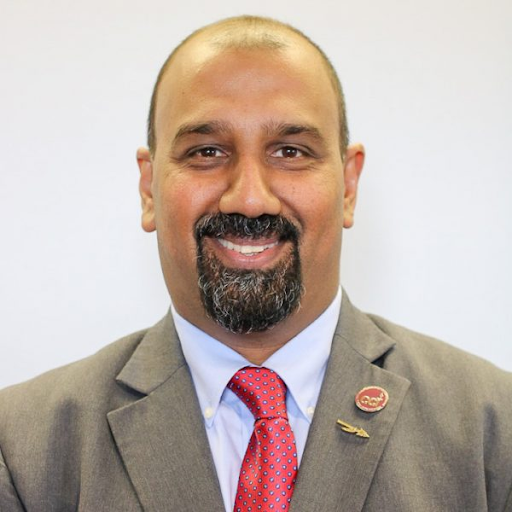
Dr. Ebe Randeree, Florida State University
Ebe Randeree’s background spans the fields of technology, healthcare, leadership and higher education. His specific interests are in outreach and creating pipelines from k-12 to higher education to industry. He has focused his service role on recruiting more women and minorities to the STEM fields. He has served as the Associate Dean at the College of Communication & Information at Florida State University since 2012 where he is responsible for finance, administration, outreach, and communication (and teaching courses in leadership, career prep, health informatics, and technology). He focuses his efforts on community outreach, employer partnerships, and supporting k-12 programs. Currently, Ebe serves as FSU PI on NSF BPC: Collaborative Research: BPC-AE: STARS: Catalyzing Action-Oriented Academic Communities for Broadening Participation in Computing. Ebe joined the STARS Computing Corp in 2006 as an Academic Liaison and has worked with STARS BPC efforts since then. He is also lead investigator of FSU iCamp for rising 9th through 12th grade high school students. Ebe has a Master’s degree in computer science from Rochester Institute of Technology and an MBA from the University of Buffalo. He started at Florida State University in 2006.
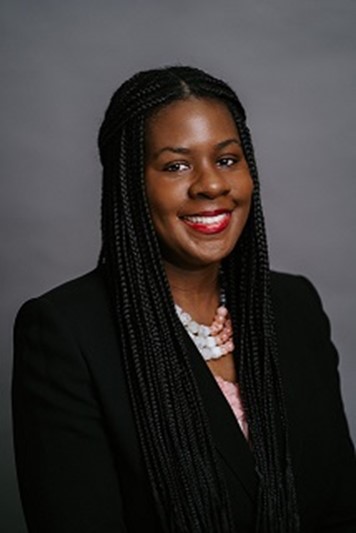
Dr. Felesia Stukes, Johnson C. Smith University
Dr. Felesia Stukes is an assistant professor of Computer Science at Johnson C. Smith University (JCSU). Dr. Stukes joined JCSU in the fall of 2017 as the first African American faculty in the Department of Computer Science and Engineering. In 2019, she founded The Social Computing Lab where her research is situated at the intersection of communities and technology, using computer models and data science to explain social phenomena. Her work has several application areas including sports, business, and education. Her research is also focused on Computer Science (CS) education to find more effective approaches to bring computer science to a wider and more diverse audience.
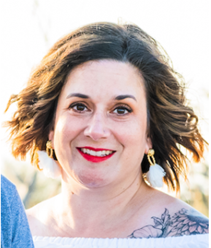
Dr. Clarissa Thompson, Kent State University
Clarissa Thompson is an Associate Professor in the Department of Psychological Sciences at Kent State University. She completed her Ph.D. in Cognitive and Developmental Psychology at The Ohio State University in 2008, and she was also a postdoctoral research associate at Carnegie Mellon University. Dr. Thompson’s area of research expertise focuses on how children and adults learn and remember, with much of her recent work centering on how people (mis)understand and are anxious about math. Her work has real-world implications for improving math education and health decision making. Thompson and her collaborators have secured over $2.5 million in external funding from the U.S. Department of Education and the National Science Foundation, among others. The goals of this funded research include: improving children’s and adults’ understanding of fractions, teaching adults how to mathematically compare real-world COVID-19 health risks, and broadening participation for groups typically underrepresented in STEM fields. Thompson currently serves as Chair of the KSU Institutional Review Board and is an Associate Editor for the Journal of Experimental Child Psychology, a top-tier journal in child development.

Aron Warrick, Reju, Inc.
I am a Philadelphia native, STEM advocate, Innovator, Co-founder (Reju, Inc.), Speaker, and Control System Engineer that’s sharing opportunities that inspire, engage & motivate emerging leaders in STEM & Entrepreneurship. I am the Co-Founder and CEO of Reju, Inc. Reju app encourages mental, physical, and emotional success by equipping people to overcome adversity and manifest their best selves with bite-sized pieces of wisdom, guidance, and inspiration. Reju provides peer to peer therapy connections bridging the gap between end users and license practitioners.
WHAT I DO: I utilize my vast experience in industrial control systems to promote company growth by ensuring safe & reliable performance of process control systems. An experienced Automation & Control System Engineer with 7+ years working in Natural Gas & Water/Wastewater industries. Skilled in computer & electrical engineering, industrial programming, implementation & design, SCADA, system integration, and industrial cyber security engineering.
